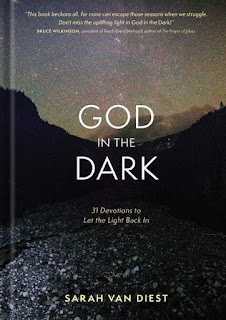To See Clearly
“So we fix our eyes not on what is seen, but on what is unseen, since what is seen is temporary, but what is unseen is eternal” 2 Cor. 4:18.
Pride, the great enemy of faith, grows in comfort, ease and
peace. The barrenness of the time spent in the wilderness is forgotten, and
arrogance commends the actions of my own hands. Though I speak in thankful
tones, even in my prayers, I name the shadow that rises in my heart: hubris.
I do not understand faith. I resist the idea of it. It sits
in front of me as a choice, when I desire it to be something other than that,
something more convincing, something I can’t hold in my hands. I want it to be
larger than I am. I want it to overtake me. After all, if it is something I am responsible for then it is something for which I could be proud, yes?
“Humble yourself under the mighty hand of God.” These words
ring in my mind. The enemy to faith is pride. I know this to be true and
can see how the math plays out. Making myself larger than the God I claim to
serve elicits conflict.
Though there is utter recognition of my minuteness in
contrast to His immensity, it feels so extreme that my mind dismisses it. It
falls into the unfathomable, so I don’t, which leaves me the god of my
own universe. His enormity, His greatness cannot fit in my mind, so I am alone
in there. A dangerous solitude.
There seems to be a disconnect between my experience and my perception. My experience of God has been deeply sweet, absorbing into my soul
like a marinade into meat, permeating and infusing; tenderizing an otherwise hard heart. But the perception of my mind
is clinical and void of effectual impact; the perception of my mind is a cold
calculation of information where beliefs wither in the intensity of the light
that burns them turning them back into the ash from which they first arose, or so goes the
cynic’s song.
Why does the mind seem to be such a harsh enemy of the
heart? Why must reason lay down its life so that faith might live? It seems reason must submit
itself to the longings of the soul for joy to find its seat and settle in.
“So we fix our eyes...,” those words make me want to cry,
not because they are bad or wrong or sad, but because they put the choice in
front of me once again. It feels as if I’m being asked to focus on one aspect
of truth and ignore the rest in order to gain the beauty I seek; as if I could simply acquiesce to one truth
having dominance over another thus making all things well and right and good.
As if it’s up to me. Is that what faith asks of me?
Could this be what it is for the soul to groan and mourn for what was
and what shall again be?
In Henri Nouwen's deeply inspiring book, The Return of the Prodigal Son, he says this about the dichotomy we feel we experience and the quest for joy, hope, faith, truth and those things we long for in the abundant life:
Truth, it feels, has been divided, or given a dark
side, but I should be wise to remember that this dark side is only temporary; it is only for now, “…since what is
seen is temporary.” A day will come when there is no longer a dark side to
truth, because there never really has been… it is only an illusion, a deception,
because truth has no temporary aspect
to it. We are to “fix our eyes,” because yes, now we can only see dimly, as in a mirror.
Nouwen says, "People who have come to know the joy of God do not deny the darkness, but they choose not to live in it. They claim that the light that shines in the darkness can be trusted more than the darkness itself...."
In Henri Nouwen's deeply inspiring book, The Return of the Prodigal Son, he says this about the dichotomy we feel we experience and the quest for joy, hope, faith, truth and those things we long for in the abundant life:
It requires choosing for the light even when there is much darkness to frighten me, choosing for life even when the forces of death are so visible, and choosing for the truth even when I am surrounded with lies. I am tempted to be so impressed by the obvious sadness of the human condition that I no longer claim the joy manifesting itself in many small but very real ways....
Joy never denies the sadness, but transforms it to a fertile soil for more joy.
Nouwen says, "People who have come to know the joy of God do not deny the darkness, but they choose not to live in it. They claim that the light that shines in the darkness can be trusted more than the darkness itself...."
This is faith.
“For now we see in a mirror dimly, but then
face to face; now I know in part, but then I will know fully just as I also
have been fully known” I Cor. 13:12.
I desire this so desperately. The Spirit in
me leaps at these words and longs to know them in full.
One day.



Comments
Post a Comment